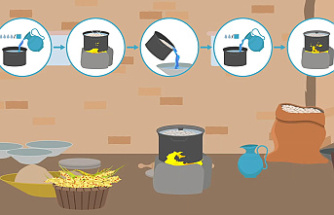India has reduced the interval between second and third coronavirus vaccinations to six months, from nine months.
On Wednesday, the government's expert panel recommended that the decision be made.
It is anticipated that the country will have greater coverage for the booster dose, or the precaution dose as it is known in India.
India has already administered 48 million booster doses, which is only 5% of eligible populations.
In January, the country launched the booster dose program for healthcare workers and frontline workers. It also includes those over 60 with comorbidities.
Later, the drive was extended to all adults. In January, a vaccine program for 15--18-year-olds was launched. The same went for 12--14-year olds in March.
Since January 2021, when the country began its vaccination drive, it has administered more than 1.98 billion doses.
India has so far reported approximately 43.5 million Covid cases. This is second only to the US.
The country currently reports cases of around 18,000 cases per day. States such as West Bengal, Maharashtra and Tamil Nadu have seen an increase in active cases daily over the past few months. The federal government asked all states to increase surveillance of the virus. This includes random screening passengers who travel from abroad.
India was slow to get off the ground when immunizations were made available for approximately 960 million people in January 2021.
The rollout was complicated by logistical issues, supply bottlenecks and vaccine hesitancy.
As the situation improved, the government was able to increase coverage with thousands of private and public health facilities offering the jab.
The drone delivered vaccines to remote villages in the mountainous north-east India.
Drones were also used for transporting doses to Nicobar and Andamans, where it was difficult to get by boat.
Despite missing its ambitious deadline for universal adult vaccination by 31/12/2021, the program has achieved some milestones.
India administered over 20 million doses of erectile dysfunction in one day on 17 September in an unprecedented effort to celebrate Prime Minister Narendra Modi’s 71st Birthday.
It was the second country to surpass the one billion mark after China in October.
India currently uses four vaccines: the Oxford-AstraZeneca jab (known locally as Covishield); Covaxin, made by Indian firm Bharat Biotech and Russian-made Sputnik V; Corbevax.
Covishield accounts for approximately 80% of all doses administered to adults to date.
Corbevax is a protein-based vaccine that Biological E has manufactured. It was approved by India's drug regulator for emergency use in February 2022.
Covovax, a product of the Serum Institute Of India, was approved for limited emergency use for children aged seven to twelve years.
Indian pharmaceutical company Cipla was also authorized by the government to import Moderna's vaccine. It has been shown to be nearly 95% effective against Covid-19. These doses are not yet available for India.
It also approved Sputnik Light, a single-dose vaccine that is part of Sputnik V, in February.
Side effects can occur when people receive vaccines.
India has a surveillance program for monitoring adverse events that occur after immunisation. It is now three decades old. Experts warn that failure to report these incidents in a transparent manner could result in fear-mongering about vaccines.
According to the government, more than 772,000 adverse events had been reported by the country following vaccinations as of 13 March 2022. These included "minor and serious events" as well as severe ones.
The cases of serious illness were "minor in number; vaccines may or might not have been the cause of death."
According to the government, adverse effects might not be caused by vaccines. They also stated that the risk of death from vaccination is minimal compared to the risk of contracting Covid-19 disease.












